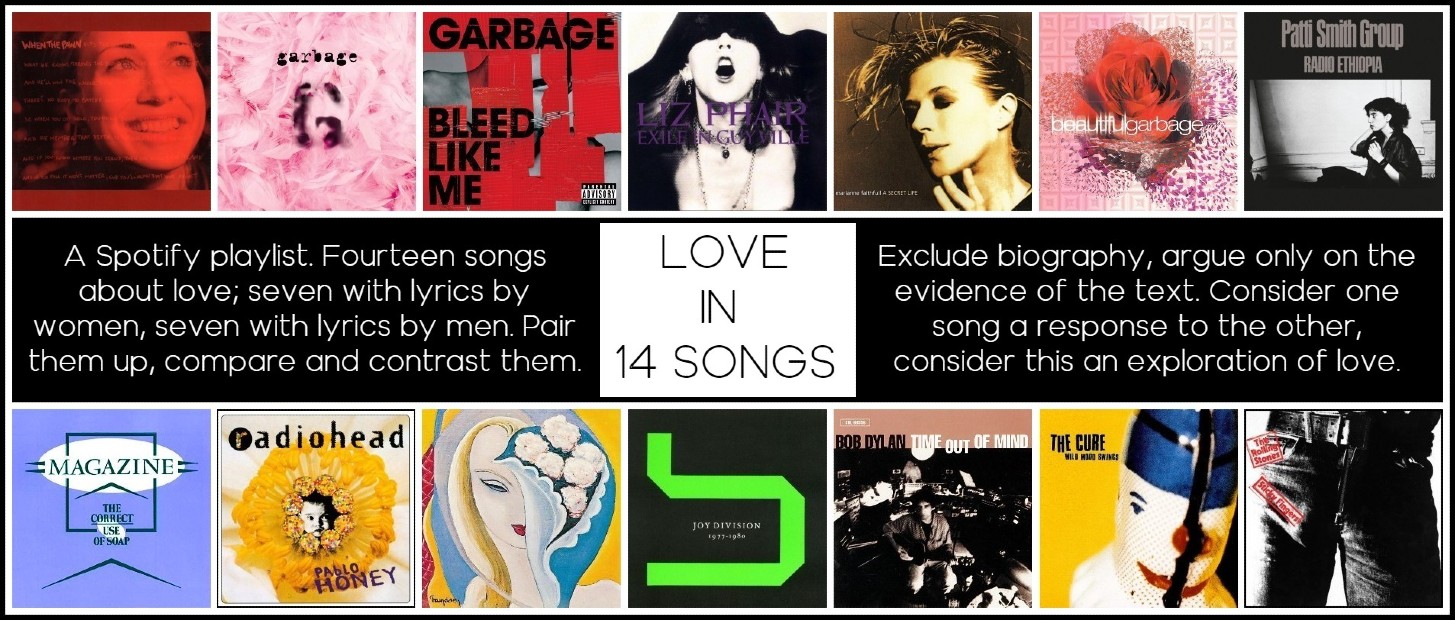
LOVE IN FOURTEEN SONGS – IV
STANDING IN THE DOORWAY | FLAMING SEPTEMBER
Bob Dylan | Marianne Faithfull (lyrics) & Angelo Badalamenti (music)
Richard Jonathan

LOVE IN FOURTEEN SONGS – THE FOURTH PAIR
In ‘Standing in the Doorway’ and ‘Flaming September’ the love affair is over, and the ex-lovers adopt different stances to address the fallout.
STANDING IN THE DOORWAY
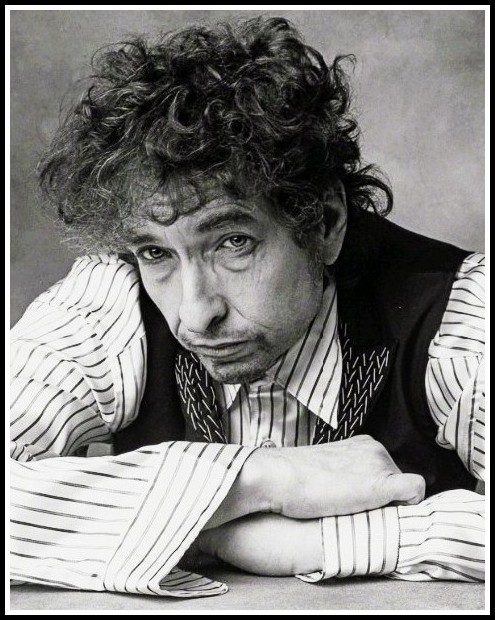
Bob Dylan | Mark Seliger, 1997
‘Short Letter, Long Farewell’, the title of a 1972 novel by Peter Handke, could well serve as a leitmotif for many a Dylan song. ‘Standing in the Doorway’ is a late instalment in the lover’s long farewell: the song’s tired dignity testifies to the long road travelled. Indeed, its weariness is everywhere. Consider, for example, the self-pity: ‘You left me standing in the doorway, crying’: The lover, giving up the fight, admits defeat; passive, reduced to a spectator, he can only watch as the beloved walks away.
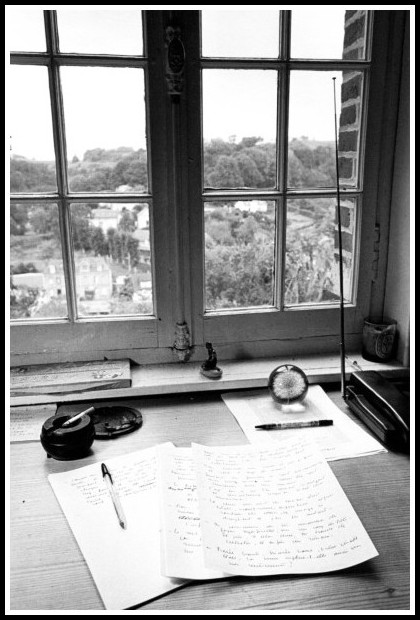
Jeanloup Sieff, Normandie, 1997
The pity slips into pathos: ‘I got no place left to turn’, ‘I got nothing to go back to now’, ‘even if the flesh falls off of my face, I know someone will be there to care’. But the only one who can give him a destination, replace nothing with something, give him the care he cares about, has turned her back on him. His fixation on her, kept alive for so long, has become a weary abdication of responsibility for himself. The lover’s evocation of his state, however, can still be touching. He is out of time: ‘Yesterday everything was going too fast, today it’s moving too slow’. He is out-of-sync with other people: ‘All the laughter is just making me sad’. He is lucid: ‘I know I can’t win, but my heart just won’t give in’.
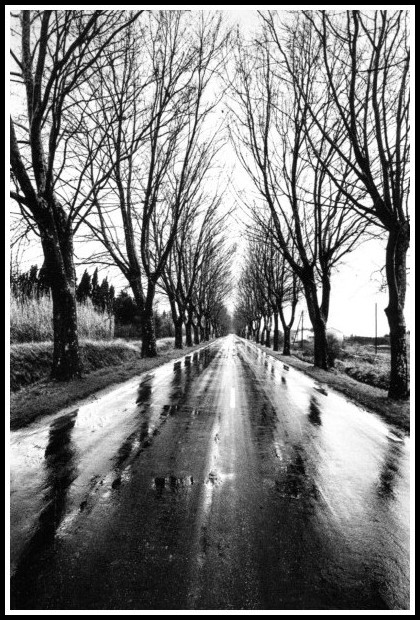
Jeanloup Sieff, Les Baux-de-Provence, 1971
As for his evocation of the relationship itself—the dead horse he’s not quite resigned to stop beating, the tired horse he’s still clinging to on the merry-go-round of his obsession—what he says shows he still has farther to fall. ‘Don’t know if I saw you, if I would kiss you or kill you’ testifies to the hate rejected love can engender, while the devastating line that follows it—‘It probably wouldn’t matter to you anyhow’—makes it clear the beloved has had more than enough of the lover’s beseeching.

Jeanloup Sieff, Maroc, 1967
‘I would be crazy if I took you back, it would go up against every rule’: a pathetic reversal designed to salvage the man’s pride, for the last thing the woman wants is to be ‘taken back’. ‘I see nothing to be gained by any explanation, there are no words that need to be said’: The communicative impasse, the despair that comes when the coin of language has become a counterfeit currency, here gives way to the fantasy that reciprocal presence may suffice to restore lost communion. But the fantasy is not full-bodied, it’s more a relic of an illusion now given up. Indeed, the lover is aware that he’s ‘standing in the doorway, crying’, and that the beloved is not coming back.
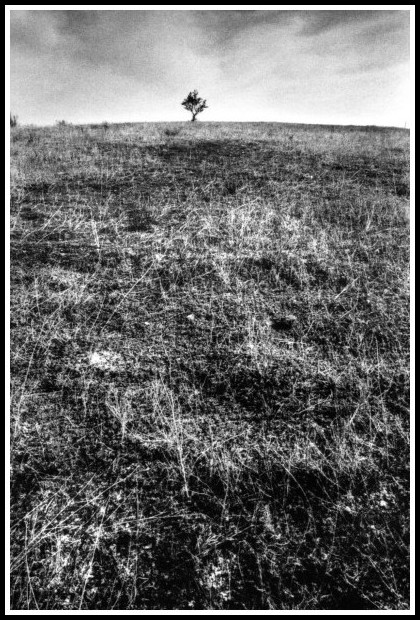
Jeanloup Sieff, Lacoste, 1975
The lover’s inability to accept that the beloved has drawn a line under the relationship, that it’s over and she has moved on, borders on the pathological. If she refuses to slip into the co-dependent slot he has reserved for her, it’s likely because she has learned that ‘love’, in this relationship, rhymes with push and shove. Clearly, the lover is impossibly needy, his demands can never be met, and he is alienated from his own desire. Intuitively, we sense, she understands that he is full of bad faith and will only find grace if she refuses to play his game; her self-respect, then, precludes her from being his partner in dependence. Thus, in rejecting the pathos of his self-pity, she is doing him a service. Indeed, she knows, like Leonard Cohen’s Suzanne, that the way out of the impasse he’s in is through the mirror she, in her silence, is holding out to him.

Jeanloup Sieff, Israel, 1968
STANDING IN THE DOORWAY
Bob Dylan
I’m walking through the summer nights
The jukebox playing low
Yesterday everything was going too fast
Today it’s moving too slow
I got no place left to turn
I got nothing left to burn
Don’t know if I saw you, if I would kiss you or kill you
It probably wouldn’t matter to you anyhow
You left me standing in the doorway crying
I got nothing to go back to now
The light in this place is so bad
Making me sick in the head
All the laughter is just making me sad
The stars have turned cherry red
I’m strumming on my gay guitar
Smoking a cheap cigar
The ghost of our old love has not gone away
Don’t look like it will anytime soon
You left me standing in the doorway crying
Under the midnight moon
Maybe they’ll get me and maybe they won’t
But not tonight and it won’t be here
There are things I could say but I don’t
I know the mercy of God must be near
I’ve been riding the midnight train
Got ice water in my veins
I would be crazy if I took you back
It would go up against every rule
You left me standing in the doorway crying
Suffering like a fool
When the last rays of daylight go down
Buddy, you’ll roll no more
I can hear the church bells ringing in the yard
I wonder who they’re ringing for
I know I can’t win
But my heart just won’t give in
Last night I danced with a stranger
But she just reminded me you were the one
You left me standing in the doorway crying
In the dark land of the sun
I’ll eat when I’m hungry, drink when I’m dry
And live my life on the square
And even if the flesh falls off of my face
I know someone will be there to care
It always means so much
Even the softest touch
I see nothing to be gained by any explanation
There are no words that need to be said
You left me standing in the doorway crying
Blues wrapped around my head
FLAMING SEPTEMBER
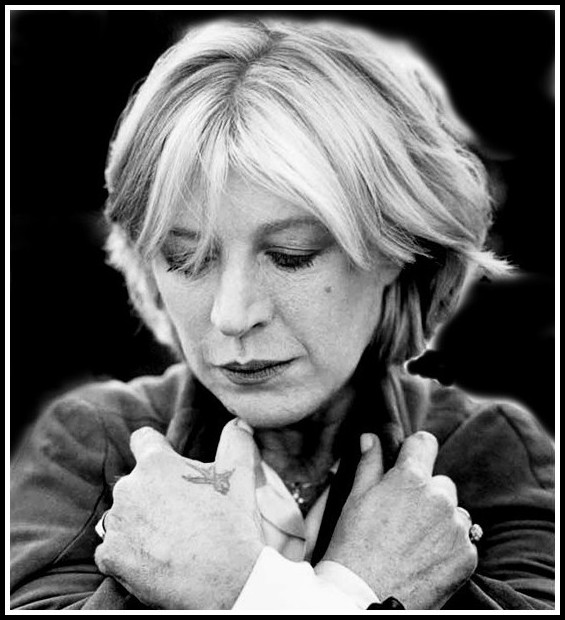
Marianne Faithfull | Jim Rakete, 1999
How does ‘Flaming September’ respond to ‘Standing in the Doorway’? With gravity and grace, with compassion and determination. Here, the woman is fully a subject, not defining herself against the lover who has gone. Her stance is entirely free of the sentimentality, the self-aggrandizement and the self-pity that characterizes ‘Standing in the Doorway’.
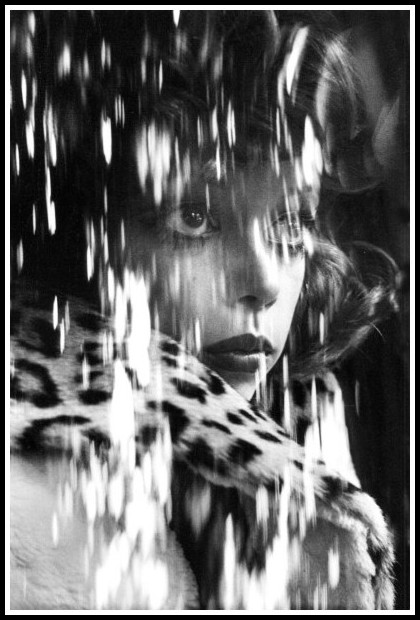
Jeanloup Sieff, ‘Mouche’, 1968
Her vision has been purified by the flames she’s been through, and those flames, we sense, date before any particular September. The witches, the weird sisters, are dancing; it goes without saying there’s ‘no happy ending to the game’. Armed with such lucidity, the woman will never be taken for a ride on a dead horse.
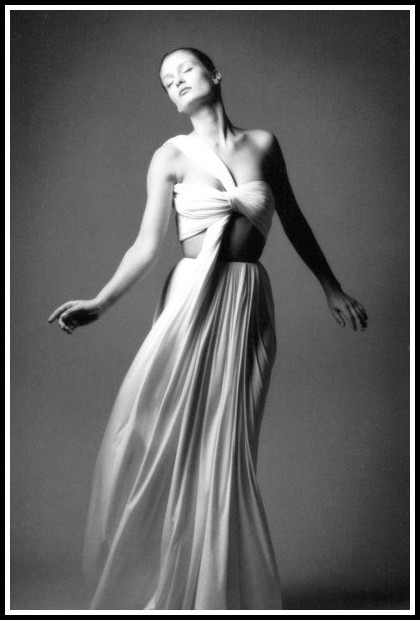
Jeanloup Sieff, Robe Madame Grès, 1980
She could show disdain, she could heap contempt, on the man who’s gone; instead, she simply reminds him of ‘all the life she gave to [him]’. Note that she says ‘life’, not ‘love’, for what passes for love (as we saw in the Dylan song) can often be deathly. She already knows the answer to the questions she asks, ‘What can you give me that is true?’, ‘What can you show me that is new?’. The authentic can touch her, she’s open to discovery, but she knows where it’s not coming from: ‘Don’t bother to call me’, ‘Don’t bother to tell me’.
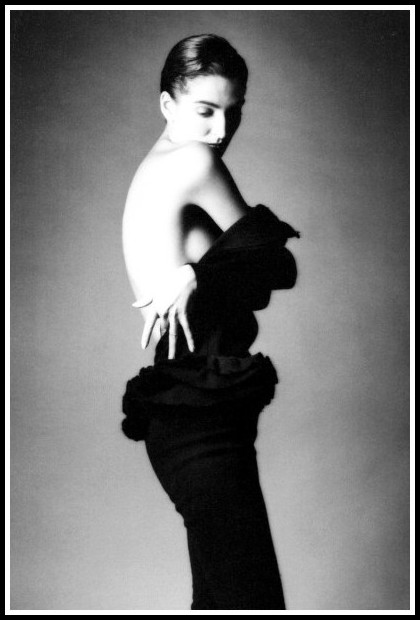
Jeanloup Sieff, Jean-Marc Sinan mode, 1987
And while her ‘youth lies bruised and broken’, she takes responsibility for it: ‘I’ll live on here just the same’. She doesn’t claim to be self-contained, she does say she doesn’t need anyone, but she knows who and what she doesn’t want.
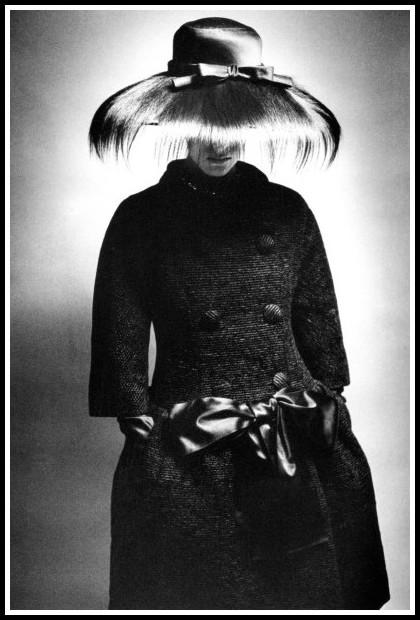
Jeanloup Sieff, Queen (London), 1961
Where ‘Standing in the Doorway’ displays a weariness that, despite the long road travelled, still can’t accept the independence of the other, ‘Flaming September’ shows not a personal but a world-weariness, one that, paradoxically, is free of complacency. Indeed, neither denying vulnerability nor making an exhibition of it, the song is all the more touching for being free of both illusion and self-pity: the dignity and courage evident in it testify to a life lived in self-respect and responsibility.
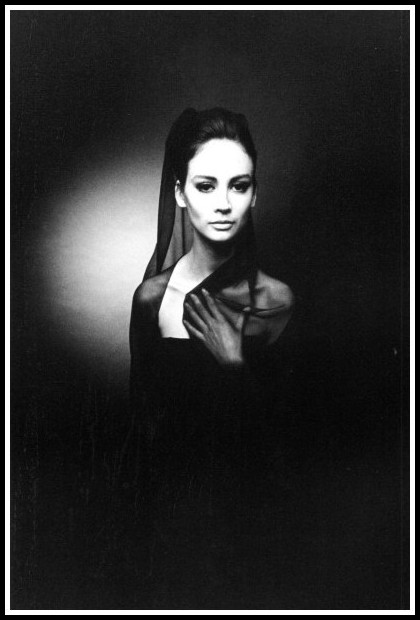
Jeanloup Sieff, Harper’s Bazaar, 1962
FLAMING SEPTEMBER
Marianne Faithfull – Angelo Badalamenti
The summer dying
September lives in flames
The sisters dancing
No happy ending to the game
Don’t bother to call me
Think I’ll stay here just the same
Flaming September
What can you give me that is true?
Do you remember
Do you remember
Do you remember
All the life I gave to you?
The summer dying
September lives in flames
My youth lies bruised and broken
No happy ending to the game
Don’t bother to tell me
I’ll live on here just the same
Flaming September
What can you show me that is new?
My heart remembers
Do you remember
Do you remember
All the life I gave
To you?
Flaming September
What can you show me that is true?
My heart remembers
Do you remember
Do you remember
All the life I gave
To you?
Flaming September
MARA, MARIETTA: A LOVE STORY IN 77 BEDROOMS
A literary novel by Richard Jonathan
By Richard Jonathan | © Mara Marietta Culture Blog, 2022 | All rights reserved

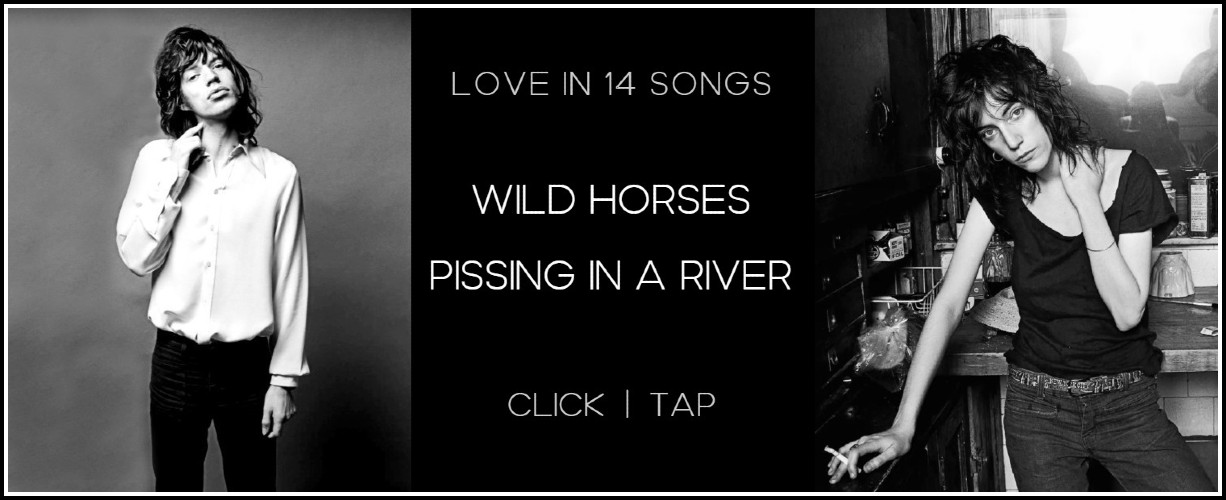
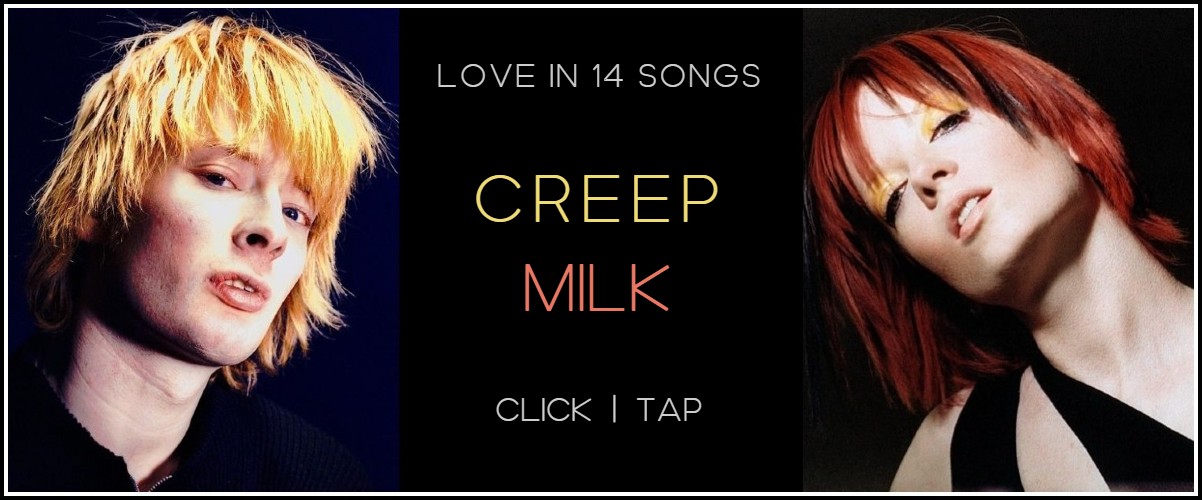
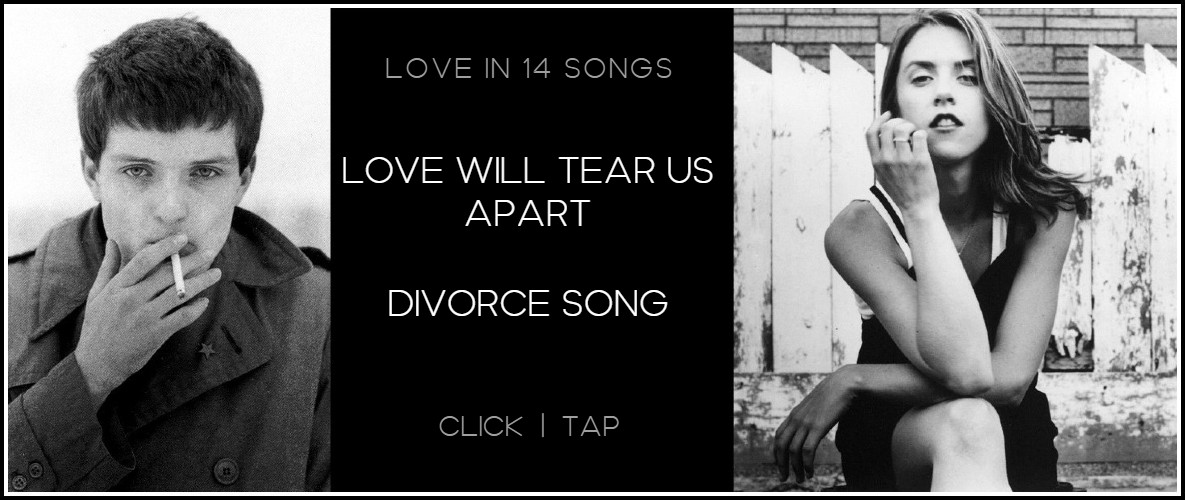
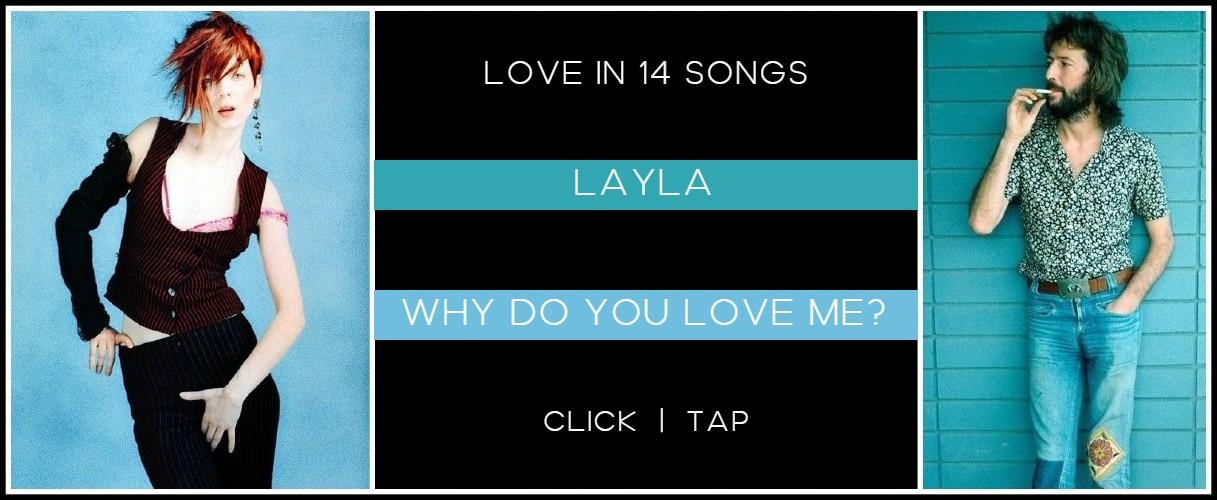
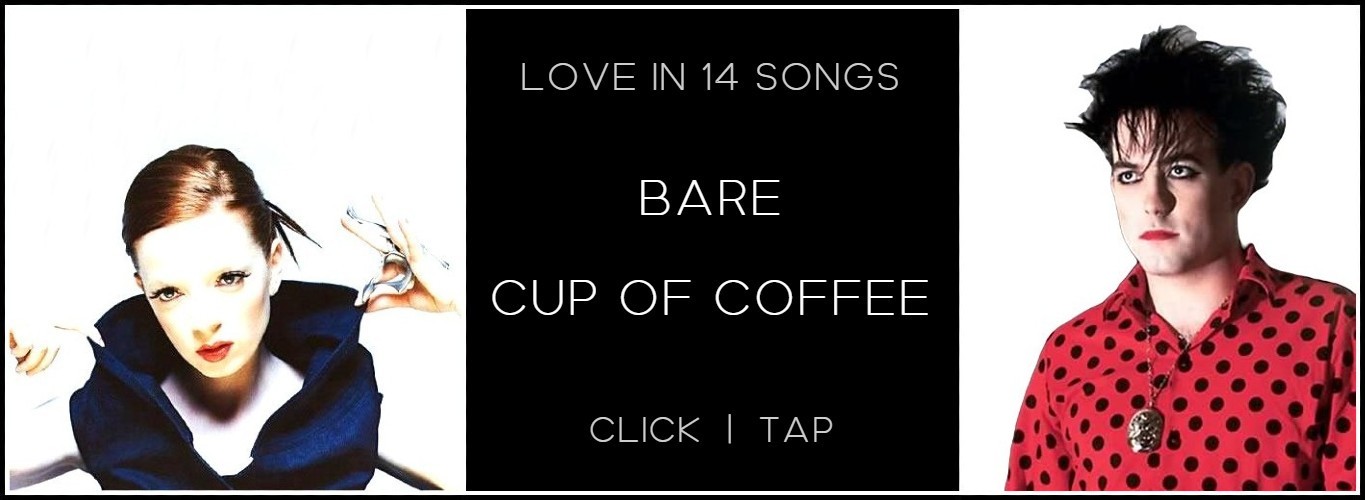
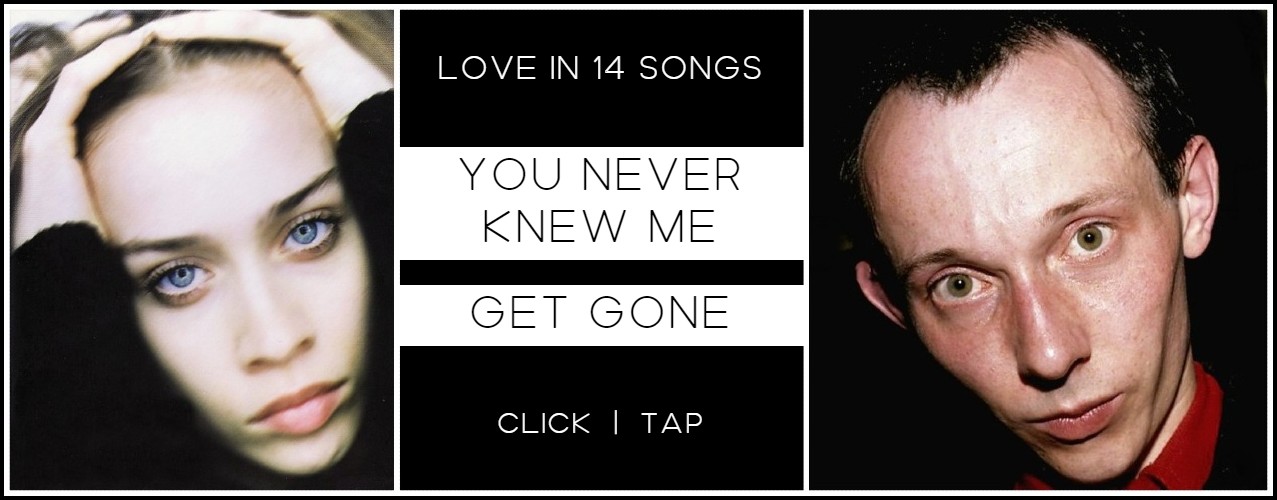
Comments